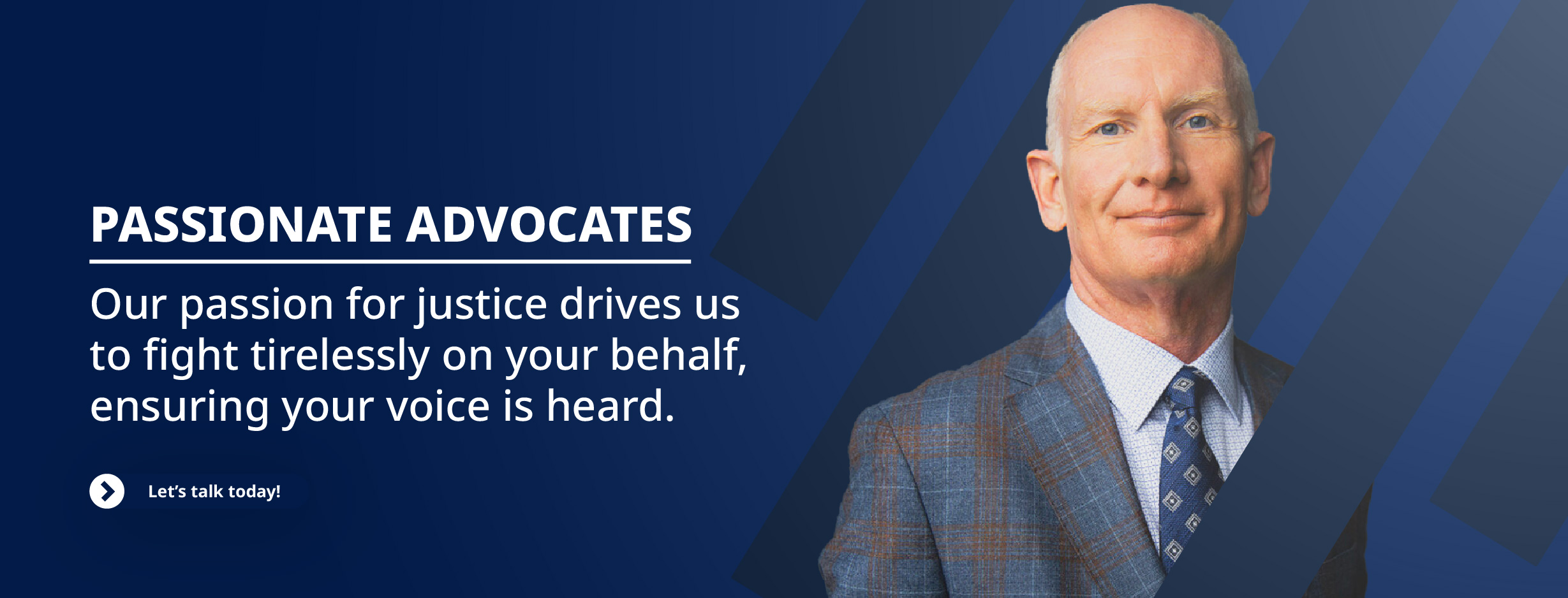You’re cruising down the street, enjoying the freedom and excitement that only a motorcycle can give. But in a split second, everything changes. Another vehicle hits you, causing serious injuries, medical bills, and stress about missing work.
On top of all that, you worry that courts or insurance companies might treat you unfairly just because you ride a motorcycle. There’s a bias that assumes bikers are reckless, and people try to might blame you even if it’s not your fault. This bias can make it much harder to get the fair compensation you deserve, adding more stress while you recover.
These worries aren’t just in your head. Many riders in West Valley City and elsewhere deal with unfair assumptions, with drivers claiming that motorcyclists were speeding or weaving through traffic. You may wonder if there’s a legal strategy that can fight these biases and make sure your case gets a fair hearing. The good news is that an experienced attorney can challenge these wrong assumptions, highlight strong evidence, and present your side clearly.
Flickinger Boulton Robson Weeks has helped many injured riders get the compensation they deserve. In this article, we’ll look at why these biases exist, how insurance companies take advantage of them, and ways to ensure you get the compensation you’re entitled to.
Motorcycle riders often face unfair stereotypes that don’t reflect the truth. Unfortunately, these misconceptions can impact how insurance companies, police, and even juries view an accident case. To protect your rights, it’s important to understand these common biases and know how to fight against them.
A big myth about motorcyclists is that they only ride for excitement and don’t follow the rules of the road. Some people believe riders are always speeding, swerving between cars, and taking risks just for fun.
In reality, most motorcyclists are careful and responsible because they know they have less protection than car drivers. Many riders wear protective gear like helmets and reflective clothing, take safety courses to improve their skills, and follow traffic laws to avoid reckless drivers.
Even so, insurance companies and lawyers for the other driver may try to use this “reckless rider” stereotype against you in a legal case.
Movies and TV shows often make it seem like motorcyclists are dangerous outlaws who ride in gangs, break laws, and cause trouble. This false image makes some people think all bikers are aggressive or irresponsible.
The truth is, most motorcyclists are regular people who commute to work, run errands, and enjoy weekend rides. In places like West Valley City, Utah, motorcyclists are just part of the local community, like any other driver. It’s unfair to let a few extreme cases define all riders, and an attorney can make sure this doesn’t happen to you.
A common misunderstanding is about lane filtering, which is when a motorcycle moves between slow or stopped cars. Some people wrongly believe that lane filtering is always illegal and automatically assume the rider was at fault in an accident.
In Utah, lane filtering is legal under certain conditions, like when the traffic is stopped, the speed limit is 45 mph or lower, and the motorcyclist is going 15 mph or less. Even when riders follow the law, some drivers complain that motorcycles appear “out of nowhere.” However, motorcycles have the same rights as cars and deserve respect on the road.
Some believe that because riding a motorcycle is riskier than driving a car, riders should just accept whatever happens to them. If a rider is injured in an accident, they might hear things like, “You knew riding was dangerous!” or “You should have expected this!”

Insurance adjusters know the stereotypes that come with being a motorcycle rider. They often use these stereotypes to blame you or reduce the amount of compensation you should get. This can be especially tough for injured motorcyclists who are already dealing with painful recoveries.
An adjuster might try to paint you as someone who always speeds, takes sharp turns, or changes lanes without warning. They may suggest that all riders are rebellious and don’t follow traffic laws.
This is meant to damage your credibility and make it seem like you caused the accident. Sometimes, small things, like swerving briefly to avoid debris, are blown up to make you look dangerous.
In Utah, the law says that if you share some of the blame for the accident, your compensation will be reduced. For example, if you’re found 20 percent at fault, you’ll get 20 percent less compensation.
If they can show you’re 50 percent or more at fault, you will not get anything. This approach relies on the stereotype that motorcyclists are careless, so you need to fight back with strong evidence to protect your claim.
Some insurers believe that because you chose to ride a motorcycle, you took on more risk. They might argue that you wouldn’t have been hurt as badly if you had been in a car or worn different gear. They may also downplay the need for expensive therapy or surgeries, suggesting they’re unnecessary. This is often done to lower the amount of money they have to pay you.
Insurance companies might question the reality of your pain or emotional distress, especially if they think you knew the risks of riding a motorcycle. They might try to offer a settlement that only covers medical bills but ignores long-term issues like ongoing pain or the loss of enjoyment in life. The idea is that since you chose to ride, you shouldn’t complain about the risks.
Sometimes, an adjuster or lawyer will look for photos of you wearing certain clothes or riding with a group. They may try to use these pictures to suggest you’re part of a “biker gang” or involved in aggressive activities. This tactic tries to sway judges or juries by tapping into negative stereotypes about bikers.
To fight these tactics, you need to gather strong evidence and get strong legal representation. Your lawyer can show that you have a good riding history, present witness statements that prove the other driver’s fault, and when necessary, provide expert reports on how the crash happened. By showing that you were careful and the other driver was truly at fault, you can challenge the insurance company’s biased arguments.

When prejudice gets in the way of your motorcycle accident claim, it’s important to take a careful, evidence-based approach. You need to prove that the other driver caused the crash, no matter what stereotypes they may have about motorcyclists. Here are some steps to help:
Documenting the crash scene is key to disproving bias. Take photos of things like skid marks, bike damage, and key locations like intersections to show how the crash happened.
Statements from witnesses who saw you following the rules, like using turn signals and sticking to the speed limit, can be very helpful. In some cases, a traffic camera might catch the other driver breaking the rules, like running a stop sign, which proves they were at fault.
Professionals like accident reconstruction professionals can help explain exactly how the crash happened, such as how fast each vehicle was going or how the vehicles collided. Medical experts can also explain how your injuries resulted from the crash.
Their expert opinions are important for countering any claims by the insurance company that your injuries were caused by reckless behavior or pre-existing conditions.
If you have a valid motorcycle license, have taken advanced safety courses, or belong to a motorcycle safety group, this can help show you’re responsible. It challenges the idea that you’re an automatic risk taker. Having a clean driving record with no traffic tickets also helps prove that you don’t regularly break the rules.
Keep records of all costs related to the crash, such as medical bills, missed work, extra treatments, or any changes you needed to make to your daily life due to injuries. This shows the real impact the crash had on you, shifting the focus away from any unfair arguments about your actions.
If the other side claims you’re partly at fault, your lawyer can challenge their evidence directly. For example, if they say you switched lanes without signaling, you can show dash cam footage or get testimony from other drivers proving you signaled.
By addressing these claims early, you can make sure they don’t unfairly blame you.
Even if the insurance company knows you have strong evidence, they might still try to settle for less, hoping you’ll accept a low offer to avoid a long legal battle. Showing that you’re prepared to take the case to trial lets them know you’re confident in your claim. If they think a jury might side with you, they’re more likely to offer a better settlement.
By gathering strong evidence, using expert witnesses, showing your safe riding record, and challenging unfair blame, you can overcome any bias and get the fair compensation you deserve.

If a motorcycle accident in West Valley City has left you struggling with medical expenses, lost pay, or unfair blame, Flickinger Boulton Robson Weeks is ready to help. Our attorneys understand the misconceptions riders face and know how to counter them with strong evidence and skilled advocacy.
Call (801) 500-4000 to schedule a free consultation. We will listen, gather relevant evidence, and develop a strategy that highlights the defendant’s negligence. Let us protect your rights so you can focus on healing.
Bicycle Accidents
Motorcycle Accidents
Boating Accidents
Recreational Vehicle Accidents
Bus and Mass Transit Accidents
Pedestrian Accidents
Automobile Accidents
ATV or UTV Rollovers
Commercial Vehicle Accidents
Semi Truck and Trailer Accidents
UTAH INJURY LAWYERS
Flickinger • Boulton
• Robson • Weeks
PROVO OFFICE
3000 N University Ave
Suite 300
Provo, UT 84604
SOUTH JORDAN OFFICE
10393 S. Temple Dr.
Suite 103
South Jordan, Utah 84095
OFFICE HOURS
Monday- Friday: 8AM-5PM
Saturday-Sunday: Closed
*Disclaimer: the information provided by this website is for informational purposes only and should not be considered legal advice or a substitute for competent legal counsel.
**SMS consent and contact phone numbers will not be shared or sold to third parties or their affiliates for any purpose.
© 2025 All Rights Reserved.